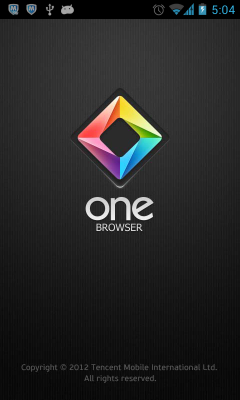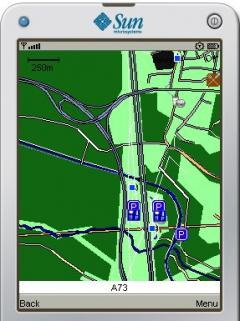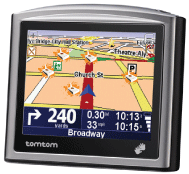OpenDMTP - OpenDMTP (Open Device Monitoring and Tracking Protocol) is a highly configurable and extensible protocol for communicating with mobile devices over high-latency/low-bandwidth networks. The protocol is particularly geared towards the transmission of GPS base location information and includes a full-featured reference implementation showcasing its capabilities.
There are many mobile GPS tracking devices on the market today with their own closed proprietary protocols. Searching the web for open protocols revealed only a few available for transferring data (including GPS information) between devices. However these solutions are generally designed for non-mobile applications and/or lack some of the low-bandwidth, configurable, and extensible features that mobile applications require.
Having an open protocol designed specifically for mobile devices has many advantages:
Targeted Event Generation: Many devices on the market are designed simply to transmit copious amount of GPS data to a back-end server hoping that the server can make sense of the data that it is receiving. The problem with this approch is that it tends to result in higher data transmission costs for information which will never be used. A protocol used for mobile applications need to be able to provide the flexibility to generate only the events that are pertinent to the specific application.
Network Efficient: Mobile devices typically have limited network connectivity, and in some cases data communication can be quite expensive (e.g. satellite). Because of this the protocol needs to be efficient in it's dialog between the client and server. The communication needs to be optimized such that the necessary information can be conveyed with a minimum number of bytes in the least amount of time.
Transport Media: Differrent mobile applications will have their own unique way of communicating data back to the server. Some may use GPRS, or socket based communication, others may use satellite communication, while still others may use other forms of wireless communication, such as BlueTooth. The design of the protocol should be able to encompass all such transport media types, regardless of the type of transport in use.
Bi-directional: Some devices can support two-way communication (ie. GPRS, or other socket based connections), while others may only support one-way communication (ie. some satellite communication systems). With this in mind, a protocol should be designed to support both duplex (two-way) and simplex (one-way) communication.
Flexible Data Encoding: Most types of transport media allow for the transmission of binary encoded data. However, there may be some forms of media for which an ASCII encoded data packet is much better suited. A protocol designed with this in mind should be able to support both types of data encoding.
Configurable Messages: Due to the broad range of data types used in mobile applications, the protocol should be flexible enough to define standard messages, yet still allow custom messages within the framework.
Extensible: Not every mobile application is the same. Some require special handling and may have various types of inputs and outputs. A protocol designed for mobile applications should insure that the framework can be easily extended to incapsulate the specific needs of the device.
Small Footprint: Mobile devices typically have limited resources on which to run client code (ie. memory, processor speed). An open protocol designed with this in mind should be optimized to allow efficient implementation and should easily support devices such as PDA's, mobile phones, GPS monitoring devices, and other OEM micro-devices.
Industry Compatibility: Having an open protocol insures better compatibility between different client devices and service providers.
Reference Implementation: Having a reference implementation that showcases the major features of the protocol provides an easy starting point on which developers can add their own features and platform specific implementation without having to worry about how data gets from the client to the server.
OpenDMTP was specifically designed to suit all these needs, especially "Targeted Event Generation" and "Network Efficiency". The typical 'data plan' for GPRS communication, for instance, is usually 1Mb per month. OpenDMTP was designed to optimize packet encoding to allow the collection of GPS information packets once every 3 minutes, 24 hours a day, 30 days a month, and still stay under the 1Mb data plan limit.
While XML is very extensible, it fails the "Small Footprint" and "Network Efficiency" requirements. Thus, it was discounted as a viable protocol solution. Many mobile devices do not have the resources necessary to be able to provide full XML parsing functionality. And an XML packet may need to be several hundred bytes in length just to send a few bytes of actual data. This alone would make the solution cost prohibitive for high-cost transport media such as satellite.
OpenDMTP also includes a full-featured commercial quality reference implementation to jump-start development.
Application Details:
Version: 1.1.3
Upload Date: 28 Jun 11
Developer: Martin D. Flynn
Distribution Type: Freeware
Downloads: 61
Size: 258 Kb



















Comments not found